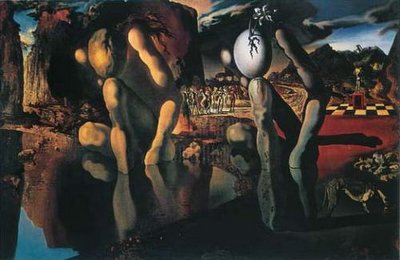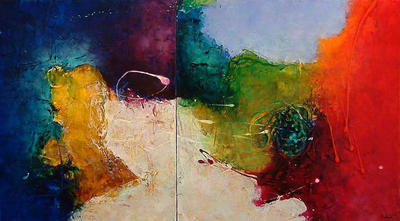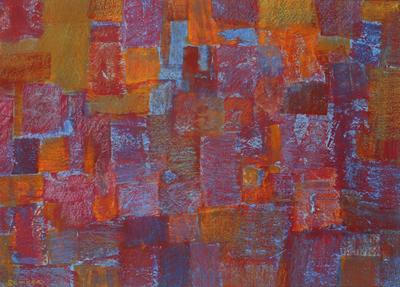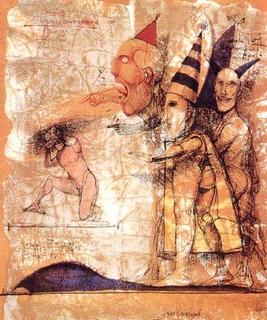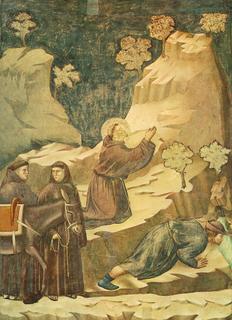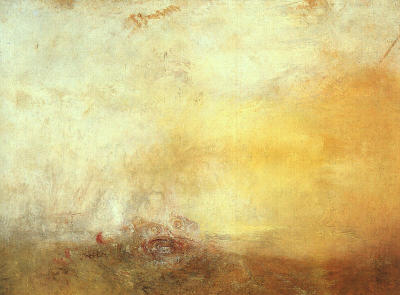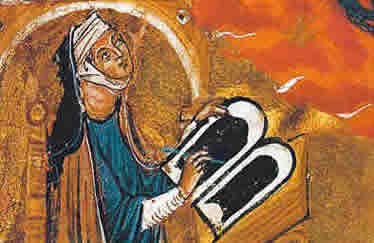
I sought the Lord, and he answered me, and delivered me from all my fears. Look to him, and be radiant; so your faces shall never be ashamed. This poor soul cried, and was heard by the Lord, and was saved from every trouble. (Psalm 34: 4-6)
The Hebrew for fear is meguraw. The root is gur which means to be a stranger, a foreigner, to be traveling through a strange land far from home. We fear that which we do not understand.
The Hebrew for troubles is tsarah. The root is tsarar which means to be caught in a narrow place or bound tightly. The more narrow our experience, the more troubles we will have, the more often we will be as a stranger.
There is no limit to God: that which exists in the past, now, and in the future. In looking to God we are illuminated, we are unbound, everyplace can become as a home to us.
Above is a self-portrait of Hildegard of Bingen.

